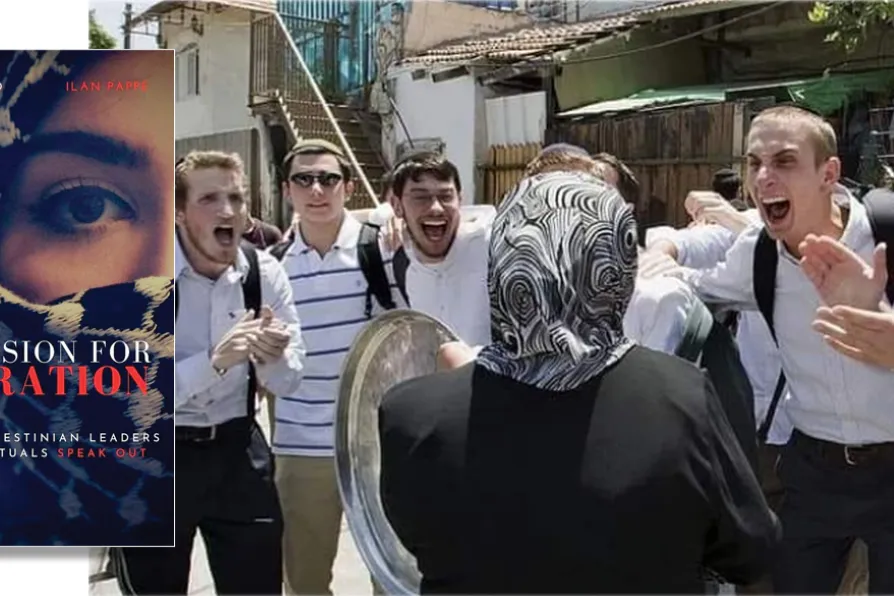MARIA DUARTE and ANGUS REID review "Wuthering Heights", Little Amelie or the Character of Rain, Crime 101, and Stitch Head

 VISCERAL HATRED: Zionist settlers mock an elderly Palestiniam woman after confiscating her house in the Sheikh Jarrah neighborhood in East Jerusalem on August 17 2021
[MohmmadRjab/CC]
VISCERAL HATRED: Zionist settlers mock an elderly Palestiniam woman after confiscating her house in the Sheikh Jarrah neighborhood in East Jerusalem on August 17 2021
[MohmmadRjab/CC]
Our Vision for Liberation; Engaged Palestinian Leaders & Intellectuals Speak Out
Editors: Ramzy Baroud and Ilan Pappe
Clarity Press Inc. £21.99
A NEW era of struggle has dawned in Palestine with the events of the Unity Intifada in May 2021.
Protests against the forcible expulsion of eight families in the Sheikh Jarrah neighbourhood of Jerusalem, the subsequent storming of protesters at the al-Aqsa Mosque by Israeli forces armed with rubber bullets and stun grenades, then 10 days of Israeli bombardment of Gaza killing 248 Palestinians all culminated in a nationwide general strike.
The Unity Intifada thus represents a qualitative change in the history of Palestinian struggle for liberation and the right to return, with hitherto disparate groups from Gaza and the West Bank, Palestinians with Israeli passports and Bedouin from the Negev renewing a shared narrative of struggle which had long fallen by the wayside.
Baroud makes the point that in past years the development of a united Palestinian political strategy has been hampered by several factors: the nature of the Israeli colonial project, the factionalism within Palestinian political groups and their self-serving leadership, the corruption of rulers of some Arab states plus muddled Western ideologies.

RAMZY BAROUD looks at how entire West Bank communities have been shattered, their social and physical fabric deliberately dismantled by Israel to enable its formal annexation

RAMZY BAROUD highlights a new report by special rapporteur Francesca Albanese that unflinchingly names and shames the companies that have enabled Israel’s bloody massacre in Gaza

RAMZY BAROUD on how Israel’s narrative collides with military failure











